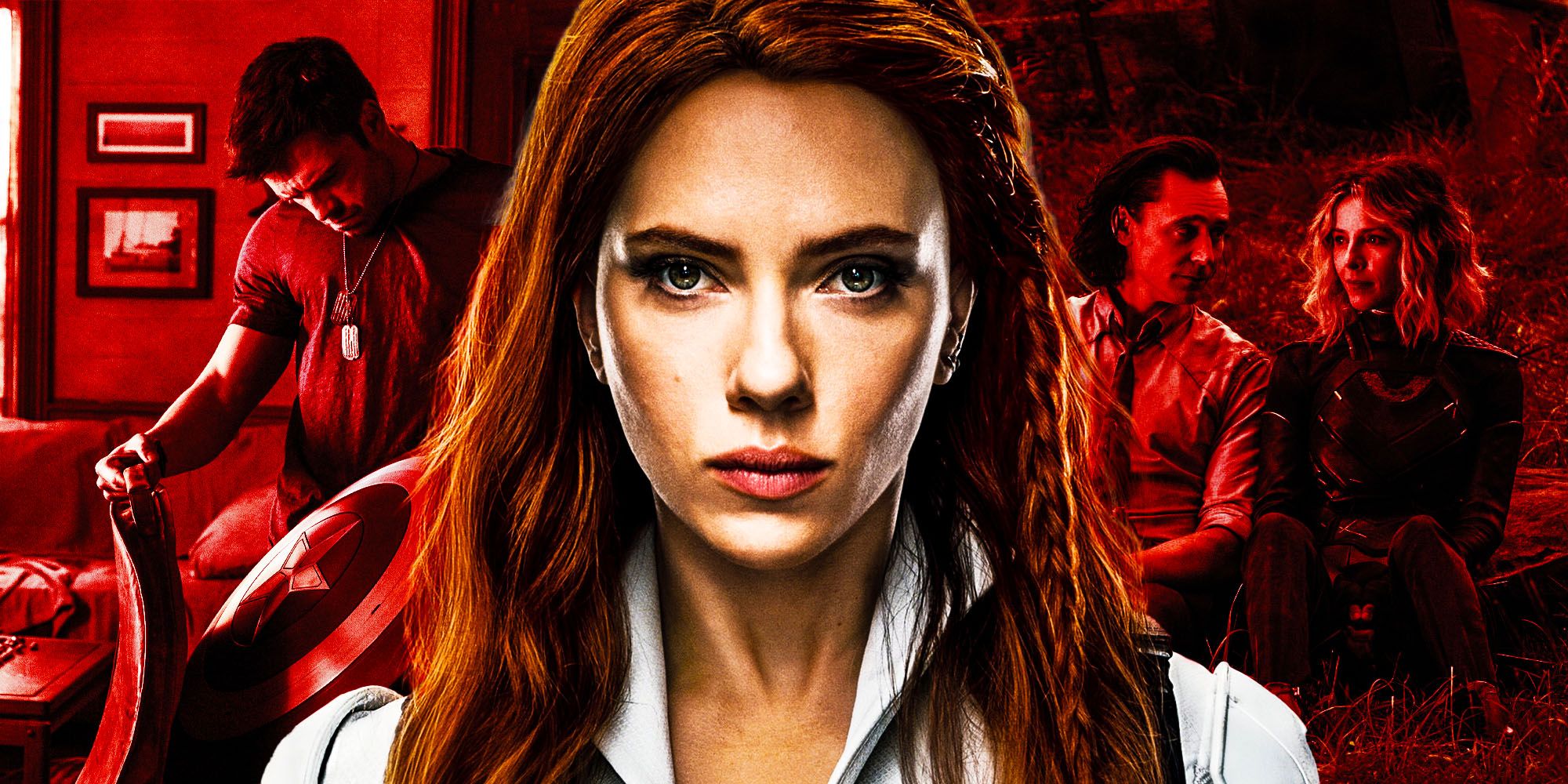The praise surrounding Black Widow and the Disney+ shows indicate that MCU Phase 4 should continue focusing less on spectacle and more on character. Indeed, there has been an overall narrative shift in Marvel’s most recent projects towards exploring characters more deeply and fostering more meaningful connections between them. Moreover, these character-driven narratives are precisely what audiences have been responding to most positively.
WandaVision was the perfect opening act to MCU Phase 4. Not only did it introduce audiences to the Disney+ series episodic format, but it also set the tone for intimate, character-focused storylines. From her grief to the origin of her powers, the series explored facets of Wanda’s character that had been hinted at but never fully developed, earning rave reviews in the process. Similarly, when Loki confirmed the God of Mischief’s bisexuality or when The Falcon and the Winter Soldier explored the nuances of Sam being Black and Captain America, audiences applauded the MCU’s newfound profundity in its character treatment. Even Black Widow, the first film of Phase 4, satisfied the audience’s long-standing craving for an intimate and worthy portrait of the beloved Avenger.
What the MCU Phase 4 projects have all done successfully so far is prove that less is more when it comes to spectacle. As grand as past action scenes have been, many arguably erred on the hollow side because they favored large-scale sequences and special effects for the sake of visual awe over actual character advancement. This, of course, isn’t to say there shouldn’t be any action at all. However, Black Widow showed Natasha’s heart made her special, not her ability to flip and kick, thereby putting her character’s story arc and relationships, particularly with Yelena, at the forefront of the movie’s narrative. Instead of the typical CGI smash fest that’s become MCU custom, the real spectacle was seeing more of Natasha’s humanity–and this applies to the Disney+ series, too.
Yes, Black Widow‘s final battle scene, wherein the Red Room fell from the sky, was a CGI spectacle that’s akin to previous MCU final battles. However, it wasn’t about the grandiosity of the special effects or stunt choreography. Natasha’s objective wasn’t to ace the superhero landing and eliminate Dreykov; it was to save the women he had endangered and imprisoned–it was about clearing her ledger, thus solving one of the MCU’s long-standing mysteries. Saving Yelena, the other Black Widows, and Taskmaster/Dreykov’s daughter served, for Natasha, as a form of atonement for initially escaping the Red Room on her own and leaving them behind. More importantly, her atonement felt earned because the film had fully invested in the smaller moments between Natasha and the other characters, from the sisterly banter with Yelena to the display of her guilt when she seemingly believed that Dreyvko’s daughter had died as collateral damage.
The final battles in WandaVision, The Falcon and the Winter Soldier, and Loki achieved the same character-focused conclusion as Black Widow, altogether indicating that the MCU has changed definitively in Phase 4. Wanda’s ending was about accepting her losses and, by extension, coming into her own as the full-fledged Scarlet Witch. Sam’s conclusion was about becoming Captain America, and he won people over not by proving himself in a fight but with heart and integrity. Loki, on the other hand, eliminated the typical final battle altogether and instead presented an examination of the burden of choice, power, and purpose, essentially highlighting that the titular character had grown from selfish and depraved to loving and altruistic. What’s significant to note is that these characters seem to be allowed to exist fully and individually within their own movie/series so far. The Infinity Saga had previously restricted its films and characters to overarching storylines that ultimately culminated in an Avengers: Endgame climactic battle. MCU Phase 4, now, is rightfully switching its focus to smaller moments that still pack a big punch.
Key Release Dates
- Shang-Chi and the Legend of the Ten Rings (2021)Release date: Sep 03, 2021
- Eternals (2021)Release date: Nov 05, 2021
- Spider-Man: No Way Home (2021)Release date: Dec 17, 2021
- Doctor Strange in the Multiverse of Madness (2022)Release date: Mar 25, 2022
- Thor: Love and Thunder (2022)Release date: May 06, 2022
- Black Panther: Wakanda Forever/Black Panther 2 (2022)Release date: Jul 08, 2022
- The Marvels/Captain Marvel 2 (2022)Release date: Nov 11, 2022
- Ant-Man and the Wasp: Quantumania (2023)Release date: Feb 17, 2023
- Guardians of the Galaxy Vol. 3 (2023)Release date: May 05, 2023
About The Author
